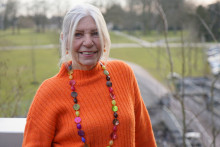To protest the forced departure of its editor-in-chief, the Cursor editorial team blacked out its website at the beginning of October. The reason for the protest was an article about an alleged conflict of interest involving the new rector magnificus of Eindhoven University of Technology (TU/e).
The Executive Board tried to block the article from appearing in Cursor and the editorial board also gave a negative publication recommendation. Faced with this pressure, the editor-in-chief decided to withdraw the article, but he was nonetheless dismissed ‘with immediate effect’.
The remaining Cursor editors didn’t accept this. They demand a new, independent editorial board and want to have a say in the appointment of a new editor-in-chief. They also want a review of the editorial statute, to better ensure Cursor’s independence.
Whistleblower
The editor who wrote the article used the university’s whistleblower scheme to submit a complaint. Pursuant to this complaint, the university’s committee for reporting irregularities is investigating 'the acts by TU/e that have been qualified as censorship and the feeling the Cursor editorial team has that they cannot do their job independently', reads the response of Minister Dijkgraaf to parliamentary questions from SP and GroenLinks.
On paper the journalistic independence of the Cursor editorial team is adequately safeguarded, Dijkgraaf believes, but he can’t say whether it’s 'completely guaranteed in practice, nor whether it has been compromised'. As a minister, he doesn’t want to say anything about individual cases.
Worrying sign
He emphasises 'that the journalistic independence of university magazines is highly valued and that I find it most undesirable for a magazine like Cursor to be blacked out'. As far as he’s concerned, university magazines like Cursor should offer a space to articles that criticise their own organisations. 'If there is increasing pressure not to publish certain articles that are seen as undesirable, I think that is a worrying sign.'
After all, 'For academic freedom, freedom of speech – and by extension, freedom of press – is a prerequisite. Both scientists and journalists should be able to carry out their research freely and independently.'
At the moment, Dijkgraaf 'does not see any reason' for a broad investigation into the restriction of freedom of press at other higher education media. Nor is he planning on talking to Eindhoven University of Technology about Cursor’s demands. 'I think it is up to the editorial team and the Executive Board to talk this out amongst themselves.'
New perspective
Those talks are currently ongoing, says interim editor-in-chief Roy op het Veld. 'In any case, I’m happy with the minister’s acknowledgement that it’s very important to have an independent journalistic platform in an academic environment.'
After all of the unrest, he himself would like to focus on a new perspective for Cursor. This will involve a new editorial plan and modernisation of the editorial statute. As far as he’s concerned, the latter should state more clearly that the editor-in-chief is responsible for any content-related considerations.
Op het Veld also thinks that at least one of the members of the editorial board should be a journalist. 'Someone like that knows the ropes and can use their own experience to provide feedback to the editorial board about journalistic choices that have been made.'







